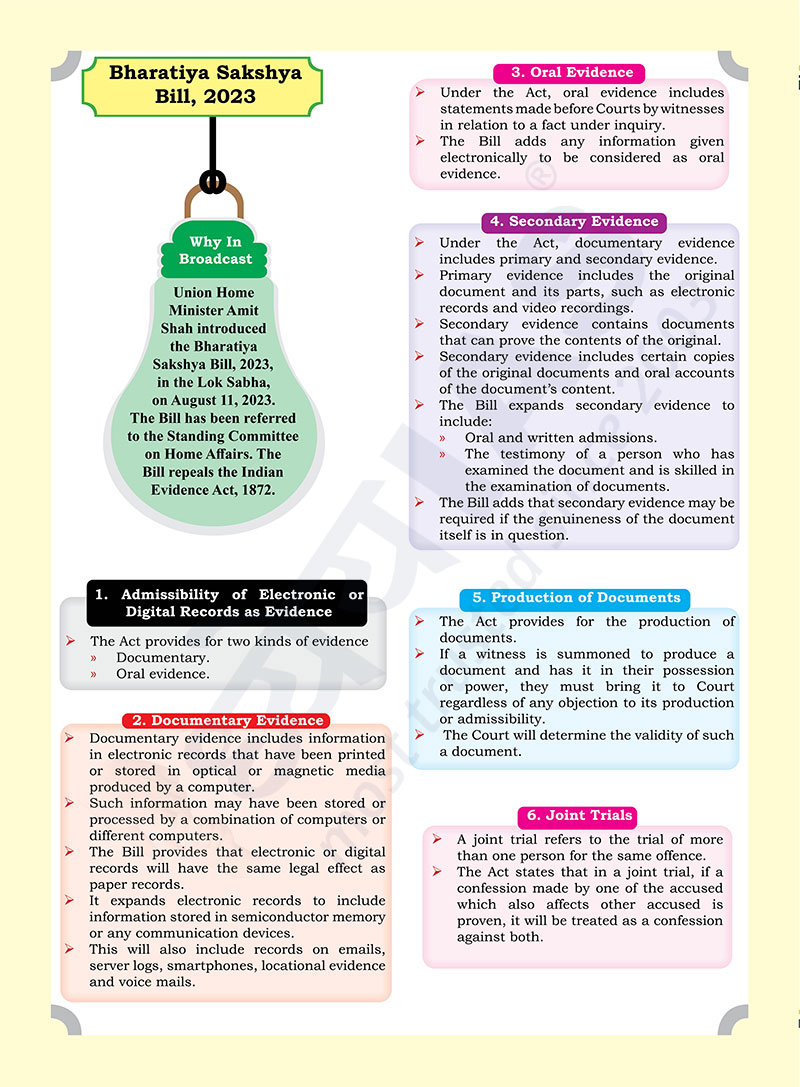Brain-booster /
24 Sep 2023
Brain Booster for UPSC & State PCS Examination (Topic: Bharatiya Sakshya Bill, 2023)

Why in Broadcast?
- Union Home Minister Amit Shah introduced the Bharatiya Sakshya Bill,
2023, in the Lok Sabha, on August 11, 2023. The Bill has been referred to
the Standing Committee on Home Affairs. The Bill repeals the Indian Evidence
Act, 1872.
Admissibility of Electronic or Digital Records as Evidence
- The Act provides for two kinds of evidence
- Documentary.
- Oral evidence.
Documentary Evidence
- Documentary evidence includes information in electronic records that
have been printed or stored in optical or magnetic media produced by a
computer.
- Such information may have been stored or processed by a combination of
computers or different computers.
- The Bill provides that electronic or digital records will have the same
legal effect as paper records.
- It expands electronic records to include information stored in
semiconductor memory or any communication devices.
- This will also include records on emails, server logs, smartphones,
locational evidence and voice mails.
Oral Evidence
- Under the Act, oral evidence includes statements made before Courts by
witnesses in relation to a fact under inquiry.
- The Bill adds any information given electronically to be considered as
oral evidence.
Secondary Evidence
- Under the Act, documentary evidence includes primary and secondary
evidence.
- Primary evidence includes the original document and its parts, such as
electronic records and video recordings.
- Secondary evidence contains documents that can prove the contents of the
original.
- Secondary evidence includes certain copies of the original documents and
oral accounts of the document’s content.
- The Bill expands secondary evidence to include:
- Oral and written admissions.
- The testimony of a person who has examined the document and is
skilled in the examination of documents.
- The Bill adds that secondary evidence may be required if the genuineness
of the document itself is in question.
Production of Documents
- The Act provides for the production of documents.
- If a witness is summoned to produce a document and has it in their
possession or power, they must bring it to Court regardless of any objection
to its production or admissibility.
- The Court will determine the validity of such a document.
Joint Trials
- A joint trial refers to the trial of more than one person for the same
offence.
- The Act states that in a joint trial, if a confession made by one of the
accused which also affects other accused is proven, it will be treated as a
confession against both.








